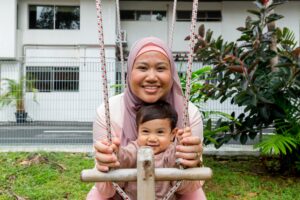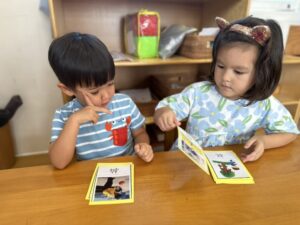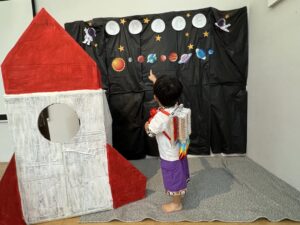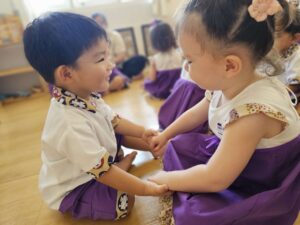4 Beautiful Locations Islandwide
Helping children with self-awareness and confidence
Developing self-confidence and self-awareness enables children to develop relationships, express their emotions and desires and become resilient, self-confident learners. It is good to know this is something that can be nurtured from birth.
At House on the Hill, we play a role in supporting children to have a strong sense of self and be in touch with their emotions and bodies.
“Making friends and having respect are important skills that should be encouraged to support children’s social interactions”, said Marilyn Ow, Principal of Mount Sophia School.
“At House on the Hill, we focus on how to increase self-esteem and self-belief in children under five, as well as help children to make friends and form relationships with their peers and educators,” she said.
“If children have a strong sense of self they are less likely to experience negative social interactions and more likely to have positive relationships.”
Children use relationships with their caregivers to form their “sense of self” and it is through positive caregiver relationships that children learn that they are valued and important in this world.
Children with a stronger sense of self have:
- Improved self-esteem.
- Decreased stress and anxiety.
- Decreased depression.
- Increased persistence, particularly for challenging tasks.
- Improved problem-solving skills.
Teachers and Educators are in the perfect position to support children with their emerging social interactions, improving their self-esteem and helping them connect with the world. Making and keeping friends may sound easy for us adults, but for young children, this may be something new and difficult.
Just like supporting a child to walk or to learn to write, our role at House on the Hill is that of behaviour coach to support the child to learn the steps involved in making and keeping friends. By promoting and teaching social skills to young children, this will positively impact their behaviour, learning and health outcomes.
House on the Hill has a strong focus on teaching children emotional regulation and confidence through a mindfulness program that supports children to connect with themselves.
Teaching children to be more aware of their physical reactions and able to link them to their behaviours is helping them develop the confidence they need to deal with challenging social situations in later years.
“When children are more in sync with their behaviour and reactions, they are more confident and more likely to stand up for themselves if they experience something they don’t like,” she said.
For example, if two children want to play with the same toy and one of the children snatches the toy away, an educator will talk the children through the experience as it is happening.
“Often a common and immediate reaction to this scenario is for the other child to push or snatch the toy, so an educator will narrate the experience and explain to both children what has just happened. By giving them the words, the children can express themselves and it also models a way of managing the situation,” she said.
This helps the children to connect their emotions to the event that occurred and the language that describes that event:
- Acknowledge the feelings – “You must have felt really sad and hurt that Tom snatched your toy away.”
- Describe the situation – “I can see that you are missing one car from your park. Tom is also trying to line his cars at the traffic light”
- Provide the solution – “Let’s try showing Tom what you are trying to do with all your cars first. Then he can have your car when you’re finished with it.”
What can you do to support your child at home?
- Parents can try this approach at home when they get frustrated or angry. Children then see and hear adults they trust in similar situations, helping them to understand that it happens to everyone and even people they care about. They also learn from adults about how to respond to these situations.
- Boost your child’s self-esteem by being a positive role model at home. Help children learn to complete tasks themselves, giving them a sense of achievement and pride. Acknowledge effort and refrain from giving harsh criticism. By helping build your child’s self-esteem, you let them know how valued and important they are.
- Talking about strengths and challenges can help children gain self-awareness. Getting children involved in something they like and are good at can raise self-awareness and confidence.
- By allowing your child to make decisions about how to behave in social situations you are giving them the understanding that they have responsibility for their interactions. It is also helpful to provide opportunities for choices during routines and play.








